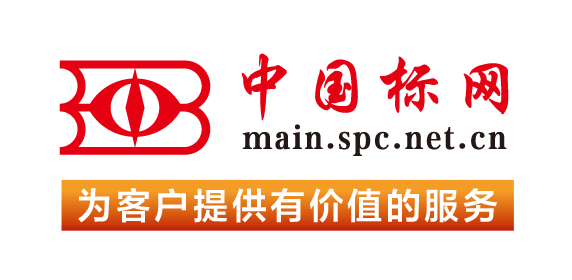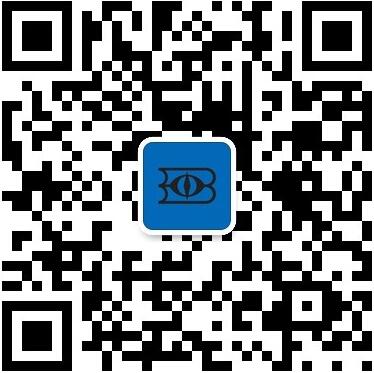【国外标准】 Standard Test Method for Determination of Gaseous Hexamethylene Diisocyanate (HDI) in Air with 9-(N-methylaminomethyl) Anthracene Method (MAMA) in the Workplace
本网站 发布时间:
2024-02-28
开通会员免费在线看70000余条国内标准,赠送文本下载次数,单本最低仅合13.3元!还可享标准出版进度查询、定制跟踪推送、标准查新等超多特权!
查看详情>>
适用范围:
5.1 HDI is mostly used in the preparation of paints. The use of isocyanates and their industrial needs have been in constant growth.5.2 Diisocyanates and polyisocyanates are irritants to skin, eyes, and mucous membranes. They are recognized to cause respiratory allergic sensitization, asthmatic bronchitis, and acute respiratory intoxication (4-7).5.3 The American Conference of Governmental Industrial Hygienists (ACGIH) has adopted a threshold limit value – time weighted average (TLV – TWA) of 0.005 ppm (V) or 0.034 mg/m3 (8). The Occupational Safety and Health Administration of the U.S. Department of Labor (OSHA) has not listed a permissible exposure limit (PEL) for HDI (9).5.4 In any case, there are not separate exposure standards for vapor and aerosol. Therefore, in comparing the results for isocyanate against a standard, results from the two fractions should be combined to give a single total value.5.5 Due to its low LOD and low required volume (15 L), this test method is well suited for monitoring of respiratory and other problems related to diisocyanates and polyisocyanates. Its short sampling times are compatible with the duration of many industrial processes, and its low detection limit with the concentrations often found in the working area.1.1 This test method covers the determination of gaseous hexamethylene diisocyanate (HDI) in air samples collected from workplace and ambient atmospheres. The method described in this test method collects separate fractions. One fraction will be dominated by vapor, and the other fraction will be dominated by aerosol. The results obtained from the analysis of the separate fractions do not necessarily represent the true partition of the measured HDI physical phases, and should only be considered a representation of the general trend in the physical phase partition within samples. The analyses of the two fractions are different, and are provided in separate, linked, standards to avoid confusion. This test method is principally used to determine short term exposure (15 min) of HDI in workplace environments for personal monitoring or in ambient air. The analysis of the aerosol fraction is performed separately, as described in Test Method D6561.1.2 Differential air sampling is performed with a segregating device. The vapor fraction is collected on a glass fiber filter (GFF) impregnated with 9-(N-methylaminomethyl) anthracene (MAMA).1.3 The range of application of this test method has been validated from 0.006 to 1.12 μg of monomeric HDI/2.0 mL of desorption solution, which corresponds to concentrations equivalent to 0.0004 to 0.075 mg/m3 of HDI based on a 15 L air sample. Those concentrations correspond to a range of vapor phase concentrations from 0.06 ppb(V) to 11 ppb(V) and cover the established threshold limit value (TLV) value of 5 ppb(V).1.4 The quantification limit for the monomeric HDI, using the UV detection, has been established as 0.012 μg/2 mL of desorption solution and as 0.008 μg/2 mL, using the fluorescence detector. These limits correspond to 0.0008 mg/m3 and 0.0005 mg/m3 respectively for an air sampled volume of 15 L. These values are equal to ten times the standard deviation (SD) obtained from ten measurements carried out on a standard solution in contact with the GFF, whose concentration of 0.02 μg/2 mL is close to the expected detection limit.1.5 The values stated in SI units are to be regarded as standard. No other units of measurement are included in this standard.1.6 This standard does not purport to address all of the safety concerns, if any, associated with its use. It is the responsibility of the user of this standard to establish appropriate safety, health, and environmental practices and determine the applicability of regulatory limitations prior to use. See Section 9 for additional hazards.1.7 This international standard was developed in accordance with internationally recognized principles on standardization established in the Decision on Principles for the Development of International Standards, Guides and Recommendations issued by the World Trade Organization Technical Barriers to Trade (TBT) Committee.
标准号:
ASTM D6562-20
标准名称:
Standard Test Method for Determination of Gaseous Hexamethylene Diisocyanate (HDI) in Air with 9-(N-methylaminomethyl) Anthracene Method (MAMA) in the Workplace
英文名称:
Standard Test Method for Determination of Gaseous Hexamethylene Diisocyanate (HDI) in Air with 9-(N-methylaminomethyl) Anthracene Method (MAMA) in the Workplace标准状态:
Active-
发布日期:
-
实施日期:
出版语种:
- 其它标准
- 上一篇: ASTM D6561-20 Standard Test Method for Determination of Aerosol Monomeric and Oligomeric Hexamethylene Diisocyanate (HDl) in Air with (Methoxy-2–phenyl-1) Piperazine (MOPIP) in the Workplace
- 下一篇: ASTM D6563-12 Standard Test Method for Benzene, Toluene, Xylene (BTX) Concentrates Analysis by Gas Chromatography (Withdrawn 2018)
- 推荐标准
- 国家标准计划
- BS ISO 24138:2024 Information and documentation. International Standard Content Code (ISCC)
- 24/30492859 DC BS EN IEC 61753-1 Fibre optic interconnecting devices and passive components - Performance standard
- BS EN IEC 61753-071-02:2020+A1:2024 Fibre optic interconnecting devices and passive components. Performance standard
- 24/30491443 DC standard
- 24/30489392 DC BS EN IEC 62358 Ferrite cores. Standard inductance factor for gapped cores and its tolerance
- BS ISO 19848:2024 - TC Tracked Changes. Ships and marine technology. Standard data for shipboard machinery and equipment
- BS ISO 19848:2024 Ships and marine technology. Standard data for shipboard machinery and equipment
- BS IEC 61360-7:2024 Standard data element types with associated classification scheme
- 24/30487130 DC BS EN 50566:2017/A2:2024 Product standard to demonstrate the compliance of wireless communication
- 24/30486472 DC - Product standard
- KS M ISO 4259-4 석유 및 관련 제품 — 측정 방법과 결과의 정밀도 — 제4부: 개별 실험실에서 표준 시험방법의 실행에 대한 ‘통계적 관리’ 상태를 확인하기 위한 통계적 관리도의 사용
- KS C IEC 61340-4-7 정전기학 — 제4-7부: 구체적 적용 분야에 대한 표준 시험방법 — 이온화
- KS C IEC 61340-4-6 정전기학 — 제4-6부: 구체적 적용 분야에 대한 표준 시험방법 — 손목접지대
- KS C IEC 61340-4-8 정전기학 — 제4-8부: 구체적 적용 분야에 대한 표준 시험방법 — ESD 차폐성 — 봉투
- 24/30485973 DC standard
 购物车
购物车 400-168-0010
400-168-0010












